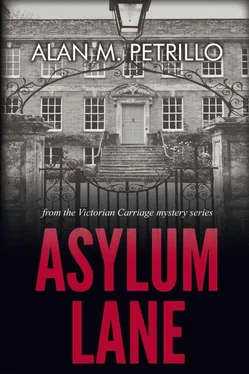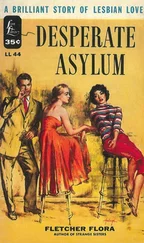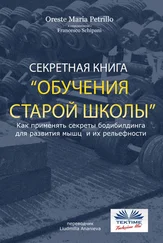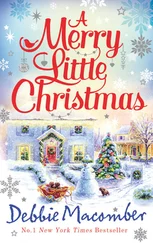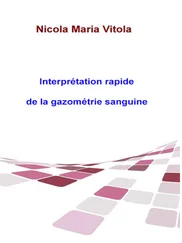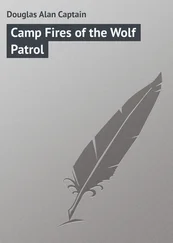Five minutes later he heard the sound of the heavy front door close with a muffled thud. Footsteps echoed on the chapel’s flagstones, hesitating outside the anteroom door. Then the door swung open and the Reverend Elsworth ducked through the opening.
“Good morning, vicar. Please take a chair.” Goodwin indicated the empty seat across from him.
The vicar sat and crossed his legs at the knees, fixing Goodwin with an expectant look. “And how have you managed this week on my behalf?”
Goodwin puffed out his chest before replying. “Quite nicely, I must say. I have several properties in mind that would make secure locations in which to house your funds.”
“Several, you say? How many might that be?”
“Six, to be precise.”
“I shall require that I personally examine each of them before I will give you a commitment to purchase them.”
“Of course, vicar. The idea is to shelter your cash in worthwhile enterprises, yet in holdings that cannot be readily traced back to you.”
“That has been my intent all along. Tell me about these properties.”
“You’ll remember that I spoke of a holding in Clifton at our last meeting, so I shall tackle that one first. You are aware, I trust, of Scarborough Villas?”
“Yes, a series of row houses on the southwest side of the village.”
“Actually a double series of row houses, and ones that bring in substantial profits for the owner from the rents. The owner, an elderly gent, has had enough of the dismal weather in York and has decided to spend his remaining years in Southampton where it is decidedly warmer.”
“And he is amenable to selling at a reasonable price?”
“Ah, there’s the rub, eh,” Goodwin said, his eyes alight. “What one considers a high price today is a reasonable price tomorrow and a bargain two years from now. These houses are practically a license to print Sterling.”
“How much is he asking?”
“Twenty-five hundred for the lot of them.”
“Damn, man, that’s half of what I have to invest.”
“You’ll remember that I suggested an assortment of types and sizes of purchases. That is what I continue to suggest to you and this property fits the bill nicely for the larger purchase.”
“As I said earlier, I shall have to inspect the premises.”
Goodwin rubbed his chin. “I should be careful if I were you, vicar. You would like to maintain an invisible presence concerning these transactions, yet if you go prancing about the properties, and looking inside each and every one, then surely someone is bound to notice. Especially in Clifton, where you are a rather notable figure.”
Reverend Elsworth frowned and deep, twin lines formed across the middle of his forehead. “You make a valid point, Mr. Goodwin. I shall make an inspection of the property from the exterior only, and do so surreptitiously. I also shall have to trust in your veracity concerning the property and its value.”
Goodwin gave an elaborate nod, but said nothing.
“And what of these smaller properties? Will there be the same restrictions on me?” the reverend asked.
“I would hardly call them restrictions, vicar. You are the one who has set forth the rules in this matter. I simply am making suggestions that I think reflect your best interests.”
Goodwin watched the vicar for a reaction, and on receiving none, continued.
“The other five properties are single freeholds that are available for purchase. All have operating businesses in them and produce consistent rent payments. There’s a seed merchant on Leeman Road, a joiner on Lowther Street, a stone yard off Bootham Square, a coppersmith on Walmgate Road, and an auction house on Toft Green.”
He pushed a square of paper with penciled notations on it across the table to the reverend. “All the addresses and details are there.”
“And the prices for them?”
“The total for the five comes out to just shy of five thousand quid.”
“If the properties are as good as you say, then we likely will proceed. Have you given any thought to forming the corporation yet?”
“I have indeed. In fact, I took the liberty of visiting a solicitor whom I use for confidential transactions, and he has drawn up these papers for you to endorse. That is, after you have reviewed them.” Goodwin extracted a small sheaf of papers from inside his jacket and laid them on the table.
The reverend snatched the papers and began leafing through them.
“And your commission for these transactions. Is that in these documents?”
“No, it is not. I feel that it is best if such things are not in writing.”
The reverend stopped leafing and smiled. “I heartily agree. So what shall your percentage be?”
“Fifteen percent.”
The reverend’s face turned pale. “Of the entire amount invested?”
Goodwin nodded.
“But that will amount to nearly 750 pounds. That’s outrageous!” The reverend’s face had gone from pale to purple.
Goodwin sat nonplussed. “I think you should remember why you came to me in the first instance, vicar. The service I am willing to provide for you cannot be found elsewhere. You simply cannot walk into an establishment like the Royal York Banking Society or the Crescent Building Society and expect the good people there to assist you in the manner that I am willing to do.”
At the mention of the two banking societies, the reverend turned pale again. Goodwin knew his jab had hit it’s mark.
“But 15 percent; my God, man, that’s usury.”
“I prefer to call it a modest commission to compensate me for all the risk that I am assuming.” Goodwin hesitated and then continued. “Reverend, if you’re thinking of backing out of our deal, I’m sure I can make the details of our arrangements known to your congregation on Sunday.”
The reverend sat quietly for a full minute, staring intently at Goodwin. Suddenly, the reverend shot out of his chair and snatched the contract from the table. “Give me a pen,” he snapped.
Goodwin produced a pen from an inner pocket, along with a small container of ink.
The reverend quickly signed the document and dated it. “There, blast you. I’ve done it.”
“You won’t be sorry, vicar. In a few weeks when we’ve completed all the transactions, your funds will be as safe as if they resided in the Bank of England’s vault itself.”
The vicar stared at Goodwin, then turned and ducked through the low door.
* * *
When Round Freddy stepped inside the station house he stopped short and stared hard at the scene before him. The room throbbed with activity, as if someone had stirred a hornet’s nest, but instead of bees, constables flew from place to place.
Pulling aside a smooth-faced constable, he asked, “What’s got into the place, Nelson?”
“It’s the body, detective sergeant. An old fisherman just came in and told us about it. In the river. A dead woman.”
“A dead woman, you say. Any identification?”
“None stated, sir. Beggin’ your pardon, but the chief constable’s sent me on an errand and I must be getting’ on with it.”
“True enough, Nelson. Off you go.”
As soon as Round Freddy stepped behind his own desk, the chief constable burst into the office.
“What the bloody hell are you doing in the station, Hume? There’s a body in the river and an investigation to be done.”
“I’ve only just arrived from checking on the Waddington abduction, sir. I shall head for the river immediately.”
“You damn well will, Hume, or I’ll have your warrant card.” The chief constable stomped from the office, leaving a smell of cigar smoke and body odor in his wake.
Round Freddy spoke briefly with the constable on station duty, and then quickly returned to the car.
Читать дальше
